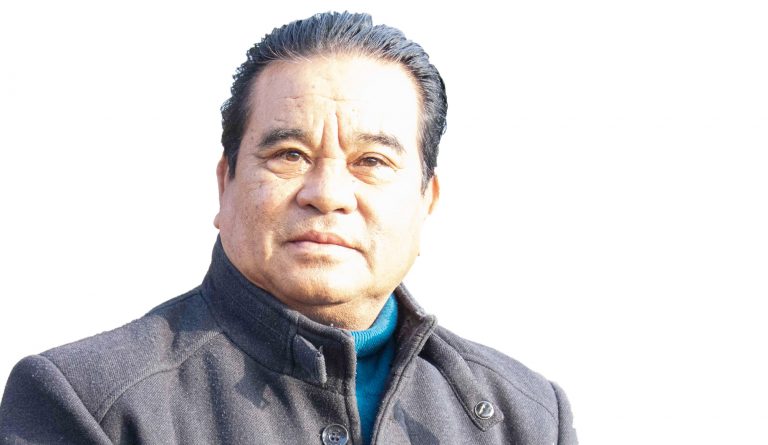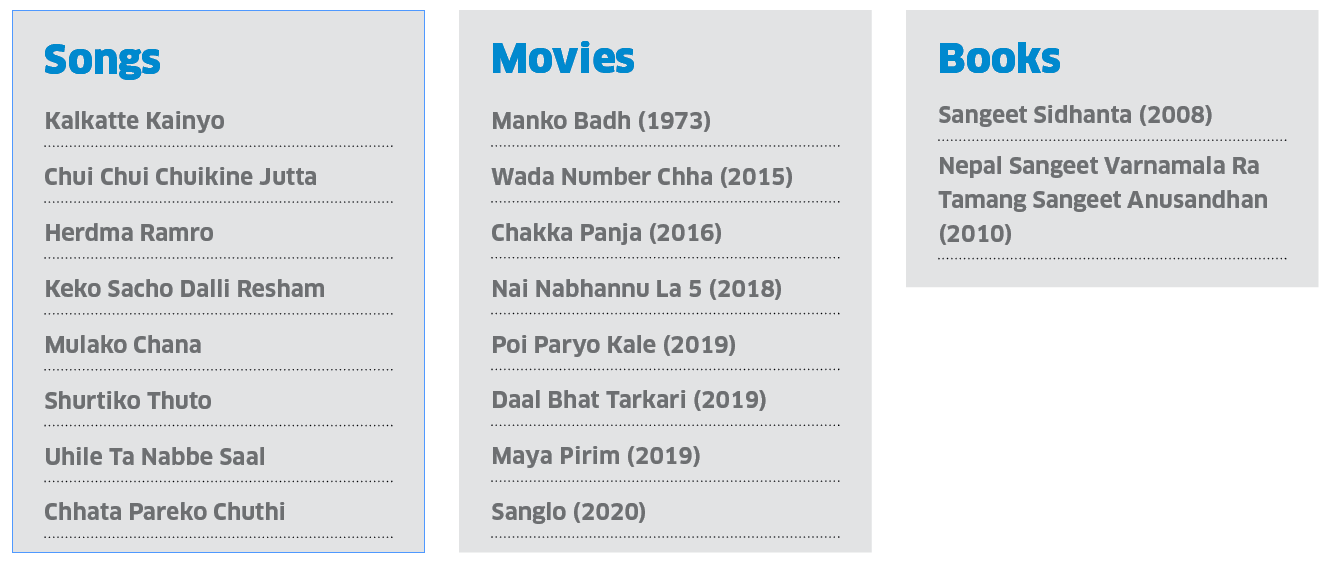Birth: 27 July 1955, Sindhupalchok
Death: 23 February 2022, Bhaktapur
Jayananda Lama, who died aged 66 on February 23, was a man who wore many artistic hats: he was a singer, dancer, music scholar, movie producer, director and actor.
The voice behind ‘Kalkatte Kainyo’, a popular Nepali folk song, and ‘Keko Sacho Dalli Resham’, a ditty popularized among modern music listeners by blues-rock group Mukti and Revival, Lama initially started out as a dancer before making his name in music and acting.
Lama was a 12-year-old boy growing up in Sindhupalchok when he was discovered by Bhairav Bahadur Thapa, a veteran choreographer and dance scholar who was scouting for musicians and dancers from across the country.
The young Lama came to Kathmandu where he was schooled and trained under Thapa’s tutelage. He became a member of Bhairav Nritya Dal, the country’s first cultural troupe established by Thapa and playwright Balkrishna Sama. Lama’s contemporaries at Bhairav Nritya Dal included actor Hari Bansha Acharya and singer and musician Ram Thapa. The eclectic circle of friends, each talented in a different field of performance art, had a great influence on Lama. He also learned to sing and play musical instruments.
As a little boy, Lama participated in a national cultural competition organized to mark the 46th birthday of the then king Mahendra. His performance won him a consolation prize of Rs 1,000 and a deal to record four songs at Radio Nepal. His first song ‘Roko Manalai Bujhaune Ko Hola?’ was recorded in 1967.
The competition was a turning point in Lama’s life. His performance had impressed the king and other royal family members. After the show, King Mahendra and the crown prince at the time, Birendra, praised Lama and offered to pay for his studies. He would get to know the royal family more intimately in the future.
Lama continued his schooling and training at the Bhairav Nritya Dal. With his fellow dancers, singers and musicians, he toured different parts of the country and abroad for shows.
Lama had a BA degree in Music from Lalitkala Campus, Bhotahiti. After getting the degree, he got a job at Nepal Academy (Royal Nepal Academy at the time). He also became a music teacher for the then crown prince Dipendra.
While at the academy, Lama got his master's degree in Music from Allahabad, India. Not long after his return from India, he joined Radio Nepal with the intent of promoting Nepali folk songs and artists. At the Radio Nepal studio, Lama recorded his own numbers and promoted other folk musicians like Narayan Rayamajhi.
Artists who worked with Lama remember his collaborative spirit, humility and contribution to promoting and popularizing folk songs. He recorded more than 200 songs during his lifetime. His song catalog was instrumental in the launch of Music Nepal, the country’s first music company.

Lama also worked as a lecturer of music at Tribhuvan University for four years and traveled across Nepal researching and collecting local folk music. His research led him to write two related books. At the time of his death he was working on his third book, on Pingul script, the oldest Nepali folk music script.
A man of many talents, Lama was also an actor—a prolific one. Since his debut movie ‘Manko Badh’ (1973) he went on to appear in over 100 films and TV shows. Although he dabbled in producing and directing films and TV series, he was best known for his acting.
He was mostly cast in comic roles, which he portrayed deftly. The smash hits ‘Chakka Panja’ (2016), ‘Nai Nabhannu La 5’ (2018), and ‘Poi Paryo Kaley’ (2019) are among his popular films.
Lama had been making more TV and film appearances in recent years.
Although he participated in musical events and TV shows like ‘Nepal Lok Star’, a singing reality contest for folk singers, he had not recorded his own songs in decades. In several interviews, Lama had expressed his discontent with the current folk music scene. He had come to despise the brazen vulgarity seeping into modern folk songs in the name of producing commercial hits and he didn’t want to sing anymore.
He was all about preserving and promoting folk roots and traditions.
Lama did make a comeback from his long musical hiatus by releasing a song a couple of months ago before his death. In one interview he had even said that he had collected enough songs to keep crooning for the rest of his life.
Lama is survived by his wife and two sons.













